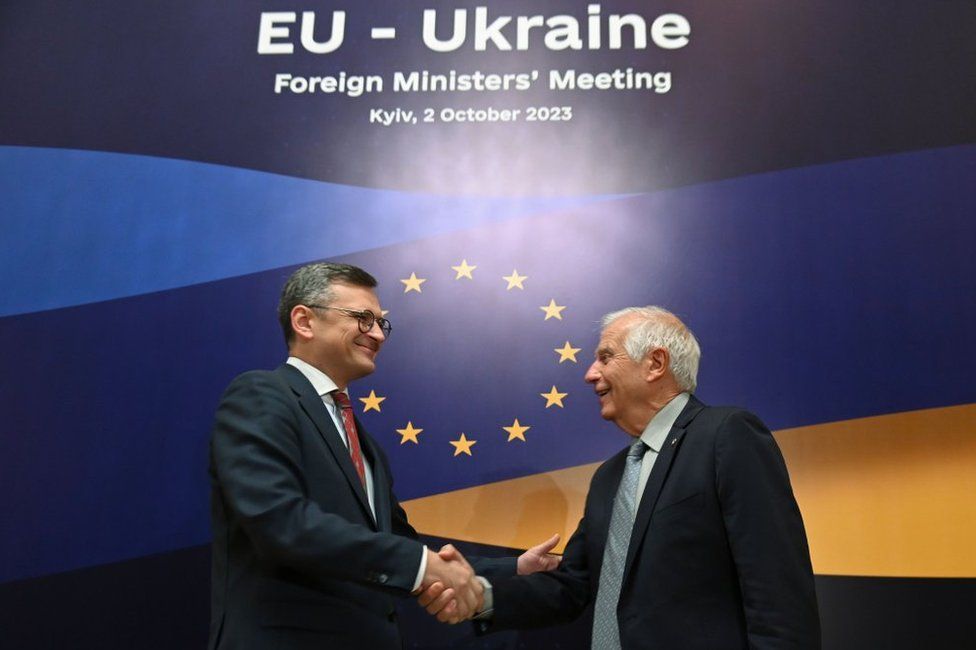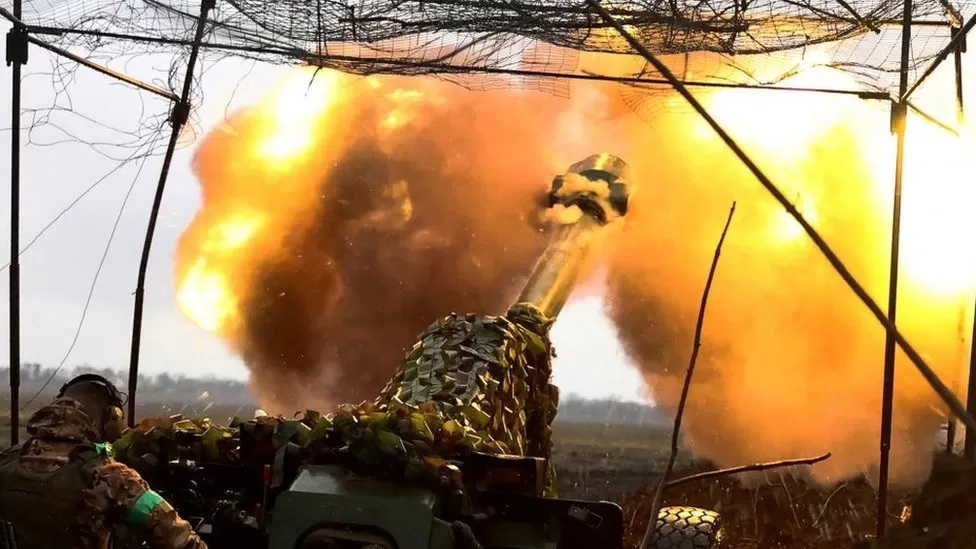Adm Rob Bauer, Nato’s most senior military official, told the Warsaw Security Forum that “the bottom of the barrel is now visible”.

He said governments and defence manufacturers now had to “ramp up production in a much higher tempo”.
Ukraine fires thousands of shells every day and most now come from Nato.
The admiral, who chairs Nato’s Military Committee, said decades of underinvestment meant Nato countries had begun supplying Ukraine with weapons with their ammunition warehouse already half-full or even emptier.
“We need large volumes. The just-in-time, just-enough economy we built together in 30 years in our liberal economies is fine for a lot of things – but not the armed forces when there is a war ongoing.”
UK Defence Minister James Heappey told the forum that Western military stockpiles were “looking a bit thin” and urged Nato allies to spend 2% of their national wealth on defence, as they had committed to do.
“If it’s not the time – when there is a war in Europe – to spend 2% on defence, then when is?” he asked.
He, too, said the “just-in-time” model “definitely does not work when you need to be ready for the fight tomorrow”.
“We can’t stop just because our stockpiles are looking a bit thin,” Mr Heappey said. “We have to keep Ukraine in the fight tonight and tomorrow and the day after and the day after. And if we stop, that doesn’t mean that Putin automatically stops.”
And that meant, he said, “continuing to give, day in day out, and rebuilding our own stockpiles”.
“The elephant in the room is that not everyone in the alliance is yet spending 2% of their GDP on defence. That must be the floor for our defence spending, not the ceiling.”
He added: “When it comes to the alliance, the US is increasingly looking east and west, and I think justifiably our colleagues in Congress need to see the European powers are spending their 2% to resource Nato equitably.”

Swedish Defence Minister Pol Jonson said it was vital for Europe to get its defence industrial base in shape to support Ukraine for the long term.
“Because we’re digging pretty deep now into our pockets, into our stocks,” he said.
“And in the long run, I think it’s crucial that Ukrainians also can procure defence material from the industrial base in Europe. We learned some hard lessons here about scale and volume, not at least when it comes to artillery ammunition.”
The UK defence ministry says that since the start of the invasion in February 2022, the UK has given more than 300,000 rounds of artillery ammunition and is committed to giving “tens of thousands more” by the end of the year.
The US state department says that over the same timescale, America has given Ukraine more than two million Nato standard 155mm artillery rounds.
Such is Kyiv’s dependence on US ammunition that there are real concerns among Nato allies about the possibility of Donald Trump being re-elected president next year.
They fear that US military support for Ukraine might diminish if Mr Trump were to seek some kind of political settlement with Moscow.
The difficulty is that despite attempts to ramp up production, Ukraine is using the ammunition faster than Western powers can replace it.
Nato and EU countries have agreed various plans to share expertise, agree joint contracts with defence manufacturers, subsidise production as much as they can.
But it appears that they are still struggling to meet the need.
Analysts say that in contrast, Russia appears much more able to gear up its wartime economy to replenish its own stockpiles.
Source: BBC NEWS




















Add Comment